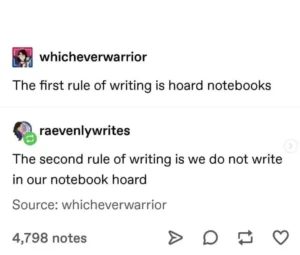I hate selling. But, selling my writing? That’s even harder
There are no two ways about it. I hate the act of convincing someone to purchase something from me. I’ve had to do it and have done a decent job, but I hate it.
The challenge is that sometimes, that’s what I have to do. As a writer, selling yourself is part of the game. It’s almost a second job, but that doesn’t mean it’s a pleasurable ordeal.
Selling yourself as a writer
When I sold an old Mercedes Benz we used to have, the sale was straightforward. «Hey, man. Sunroof doesn’t work. The left rear window won’t roll down. The brake light on the dash doesn’t turn off. Oh, and the chassis has a foot and a half of rust. So, how about $2500?»
The buyer inspected the car, drove it around the block, and that was it. We shook hands, and off he went. Selling that old car was «easy.»
Granted, it took many tries, odd counter offers (the hell was I supposed to do with two cows), and some scam attempts, but in the end, I sold it. Selling a product is easy, especially if it’s a high-quality product.
People can grasp it, feel the substance that makes it, and connect with something physical. Then, there’s the aesthetic side of it. A product has beauty and design and could even evoke emotion.
Selling yourself as a writer is different–on the internet, you have no substance, no design. Mind you, your writing is another story entirely, and one I’ll get to later.
The problem is that for people to read you, they need to buy into who you are. This means selling yourself, which can be challenging as a writer but even harder when you can use your name.
How to get people to buy into you when you’re a ghostwriter
Each article with my name is worth its weight and much more in gold. They’re the substance, the h that people will see, but chances are you’ll write plenty as a ghostwriter.
Hundreds of articles roam the web. Some of them offer advice about the best suspension for your truck to the memories of a thriving Central American businessman. That’s my writing, but not with my name. I’m missing out on the benefits I could have by leveraging it.
Once you sign that NDA, there’s nothing else you can do. Your words are theirs, your flow and rhythm become theirs, and whatever comes out will also be theirs.
It’s okay, in reality. It’s a price to pay for being a ghostwriter, but (and it’s a big but) if you write well enough, some clients might even recommend you.
That’s not common for a ghostwriter to have someone openly say: «no, I didn’t write that, this person did,» but it does happen.
When it does, it’s one of the most surefire ways to get your name across–to have someone like your writing so much that they’re willing to say your name.
Excellent writing comes at a price.
If you can’t convince someone with one sentence, chances are a paragraph won’t do.
At least, that’s what many of the freelance writers out there will say, but I feel that’s BS. Yes, you need to grasp people’s attention in mere seconds.
Also, there are thousands of writers doing the same thing, but reducing your ability as a writer to one sentence is similar to studying art to end up painting road signs.
I’ll always remember chatting with John Carlin and how he rejected a $1 million biography because of who had asked him. He never specified who it was, but the word «dictator» popped up in the conversation.
Honing your craft isn’t about obsessing over the perfect sentence to open an email. It’s about the ideal paragraph, essay, or even book, and all of it is expensive. Selling yourself as a writer comes with a sacrifice: your writing.
Reaching out to possible clients requires everything from cold emailing to blog and LinkedIn posting (hoping someone reads you) and even taking some jobs for free.
I haven’t done that last one in a while, but I’ve had to. You might come up with beautiful posts that will end up with no actual payment now but some possible income in the future, as frightening as it sounds.
That’s what has worked for me. For years, I’ve honed my craft so much that others sell me. It was costly-many articles out there never gained traction, and they came at the wrong time, but they’re out there. It sounds dark, almost dystopian, but the more your presence is out there, the more people will come.
You have to write so well for others that they’re willing to sell you, and it doesn’t come with a single sentence.
Writing about what you don’t like won’t sell
I love cars. Old, new, broken down, or pristine, I love them. That’s why it’s easy for me to sell (or buy, when I have the money) them. The same should apply to writing. It’s essential to write about things that I’m passionate about that I believe in.
That means rejecting jobs that go against my principles.
I’ll always remember chatting with John Carlin and how he rejected a $1 million biography because of who had asked him. He never specified who it was, but the word «dictator» popped up in the conversation.

It also means rejecting articles that, ironically, are only about selling-those. They don’t have emotion and a genuine cause. Ultimately, each piece I write must have a purpose that reflects me, even ghostwritten ones.
Writing is one of the most challenging jobs out there. AI is slowly killing off many openings (ironically, for those articles that lack purpose and belief). With so much competition out there, wages are decreasing, and I feel the pressure in the market is increasing.
Nowadays, selling your writing is even more challenging. Moreover, we sell only ourselves and a digital piece of paper with words on it.
So, for those who hate selling, it’s best to always lead with your writing.

